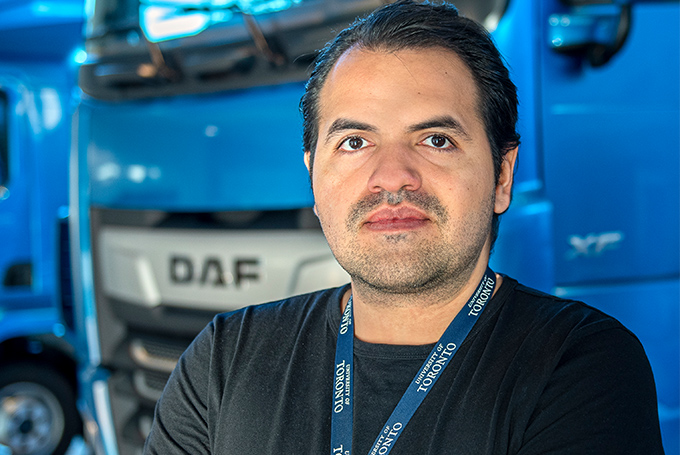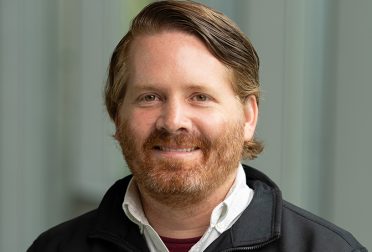SDM ’20
M.S., Automotive Technology
Ignacio Vazquez Rodarte first discovered SDM out of curiosity. One of his consulting clients was working with an industry association on legislation for emissions control in the European Union. The discussions covered the technical aspects of emissions control but also included market simulations, legal issues, and many more factors. Ignacio was trying to make sense of these complex systems and came across SDM. “I thought, ‘This looks like what I actually needed and didn’t know existed.’”
Originally from Mexico and trained as a mechanical engineer, Ignacio now lives and works in the Netherlands, working in the data science division of TMC. He describes his job as being a networker, bridging the gaps between technical specialists in their subfields. He also teaches innovation at a local university.
What brought you to SDM?
In the south of the Netherlands, where I live and work, everything is about systems. It’s embedded in the engineering culture, but it’s almost exclusively technical. There’s nothing about how to design an organization, how to create a process to interact with government entities, how to position your product, company, startup, or association in an innovation. I could figure out whatever kind of technical problem comes my way as long as it was a traditional engineering discipline, but when I started stepping out of mechanical engineering, I didn’t have the tools.
Why did you decide on SDM instead of a traditional MBA or other graduate degree?
I already had a M.S., in automotive technology. I looked at MBAs and they were really business oriented. When I looked up graduates of these programs, many of them were going into consulting or corporate strategy. That didn’t appeal to me, because I didn’t want to transition to full-fledged management. I’m an engineer, I’m comfortable with engineering. At some point MIT looked like the only option that would fill my heart.
But four years ago, I thought “I’m not that kind of person, I don’t have the experience,” so it became a process not so much to apply to MIT but to become someone who would have a fair shot. I decided I was going to do everything on my side to have a fair shot and if I didn’t get in, then I would have gained a lot of experience. And it worked out.
What’s something you hope to learn in the core class?
I have worked in really high-tech companies and they have a project manager, a system architect, and a system engineer. They all talk to each other, but they are three completely different people. I want to get hands-on experience with how everything happens at the same time. The theoretical knowledge is already out there for these fields, but they’re all looking at their own little circle. And that’s not how I have seen things happen. When a product gets started, there’s no line describing where my turf starts and ends. That’s how organizations think but that’s not how things happen. I hope that the core addresses that.
I do think that the combined core is a bit of a philosophical distinction – how do you choose to look at the world? And other people could have other interpretations, but my way of looking at things is very close to SDM’s.
How do you think a systems approach will help you in your work?
I hope that the core and the program will help me communicate with a larger pool of people. I mostly interact with people with specific knowledge and their projects are all related. At first sight they might not have anything to do with each other. They’re usually in a very early stage, when people don’t know what the question they should be asking is, and when there is not really strict planning of a timetable. I get involved when no one knows anything.
One of the other things that steered me toward SDM is the [required work] experience, because that changes the dynamic completely. Many of the other engineering management and MBA programs don’t require that experience. And that changes how people look at things! Because if you have been working, you have seen how messy things are in reality, you see how nuanced things are. And I live in nuance, that’s where I shine. The other students are from several disciplines, many of them that I have not ever worked in. If they are as motivated as I am, as driven, willing to engage and to work together, I think it’s going to be fantastic.




